Home >Technology peripherals >It Industry >Self-driving cars running over passers-by can't stop California's push for autonomous driving
Self-driving cars running over passers-by can't stop California's push for autonomous driving
- WBOYWBOYWBOYWBOYWBOYWBOYWBOYWBOYWBOYWBOYWBOYWBOYWBforward
- 2023-10-11 10:37:01758browse
This week, the latest traffic accident in San Francisco involving a self-driving car has attracted attention
A pedestrian was thrown into a Cruise self-driving car after being hit by a regular car He was crushed in front of a taxi and was trapped under the car for several minutes until firefighters rescued him and sent him to the hospital. His injuries were critical.
This incident once again highlighted the seriousness of the commercial safety issues of unmanned vehicles and attracted widespread attention
|After the accident was restored, the human driver escaped and the unmanned vehicle was trapped again The incident
occurred at 9:30 pm on Monday at a busy intersection in downtown San Francisco
Amidst the busy flow of people, a Cruise self-driving taxi owned by General Motors The car was parked side by side at a red light with an ordinary car. When the traffic light turned green, the two vehicles started moving forward at the same time. The vehicle driven by the human driver in the left lane tried to accelerate through the intersection. At this time, an adult female pedestrian happened to enter the road from the left. According to eyewitness accounts and video recorded by Cruise's internal camera, she was first hit by a regular vehicle, flew over its front hood, landed on the roof of the vehicle, then fell along the right side, and was finally thrown to the street, where she landed in an uninhabited area. The driving vehicle is in the forward lane.
The unmanned vehicle failed to dodge in time and rolled over the pedestrian. At the same time, it detected something under the rear axle, and immediately applied emergency braking and turned on the hazard lights. This also resulted in the pedestrian being unfortunately trapped under the car.
Then the San Francisco Police Department and firefighters arrived at the scene, used life-saving jaws to rescue the pedestrian from under the car and sent him to the hospital for emergency treatment. According to the fire department, the woman suffered
multiple trauma and was in critical condition.
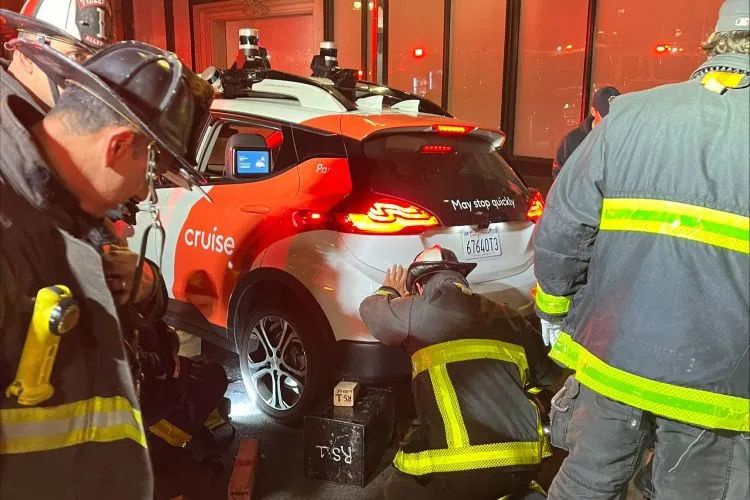
along with the arriving operator. The driver who caused the first collision had fled the scene. A spokesman for the San Francisco Police Department said in a statement that another non-self-driving car should have caused the accident in the first place, and is currently soliciting clues about the escaped driver from the whole society.
Cruise quickly posted a response on social media platform #, after the incident, we stayed where we were and cooperated with the investigation as required by the police.” “What we are most sincerely concerned about is the health of the injured. Cruise is actively cooperating with the police to help identify the responsible driver.”
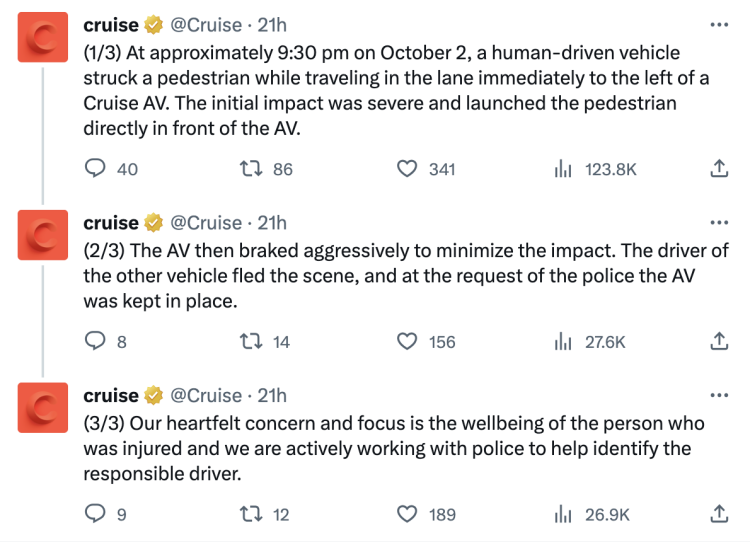 ##This is not the first traffic incident that has triggered controversy over unmanned vehicles
##This is not the first traffic incident that has triggered controversy over unmanned vehiclesAnd on the second night after obtaining the license, as many as ten Cruise unmanned vehicles encountered wireless connection problems on Vallejo Street in North Beach, San Francisco. The engine suddenly stalled, causing traffic jams for at least 15 minutes. An eyewitness wrote on social networks: "Human-driven cars are stuck behind unmanned vehicles. They are as motionless as boulders. No one knows how to move them."
On August 15, a Cruise driverless taxi accidentally drove into a construction and paving site. Its front wheels got stuck in the wet concrete and could not move. Just three days later,
A Cruise Robotaxi carrying passengers collided with a fire truck rushing to the fire scene to perform tasks, resulting in minor injuries to the passengers was taken to hospital. Cruise said the taxi entered the intersection when the light turned green but failed to yield in time to the fire truck with lights and siren on, even though it "did recognize the risk of collision and initiated braking measures to reduce the speed of the vehicle." , but ultimately the collision could not be avoided.”
Picture from FOXThis incident led the California Department of Motor Vehicles (DMV) to order Cruise to immediately reduce the number of fleets by 50% . Until the DMV completes its investigation, no more than 50 autonomous vehicles may be operated during the day and no more than 150 may be operated at night.
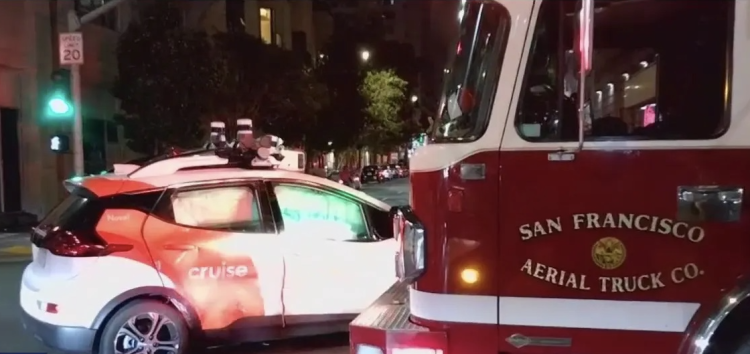
Frequent safety accidents and various uncertainties have also caused many local people to express concerns about the commercial operation of unmanned taxis, especially in emergencies, whether unmanned vehicles can Accurately identify and respond to the surrounding environment and make correct judgments.
Opponents hold marches to protest the expansion of autonomous vehicles. There is even a group called "Safe Street Rebel" dedicated to opposing driverless taxis, which encourages everyone to place a simple orange cone on the hood of an empty Robotaxi to disrupt the vehicle's positioning system and disable it. When the information went viral, Cruise and Waymo said seriously that they would call the police if they discovered it.
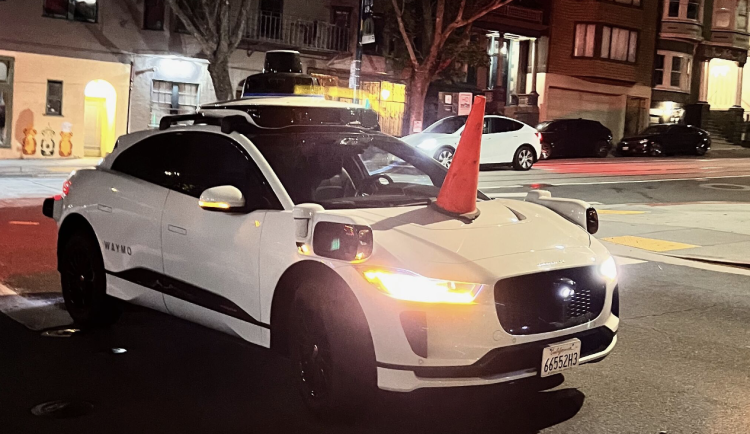
| From research and development to putting on the road, the road to commercialization of unmanned vehicles has taken more than ten years.
The operation of unmanned vehicles faces many challenges, and this road to commercialization is not easy.
Currently, the driverless taxis on San Francisco’s roads come from two industry leaders: Waymo, owned by Google’s parent company Alphabet, and Cruise, owned by General Motors. Both companies have been on the autonomous driving track for more than ten years, from technology research and development, continuous iteration, going through a capital winter, burning money in operations, to adjustment and testing, and finally commercialization.
Waymo first started as the X lab self-driving project launched internally by Google in 2009. In 2016, it was separated and renamed due to architectural adjustments. The name comes from "in the field of mobility" A new approach”.
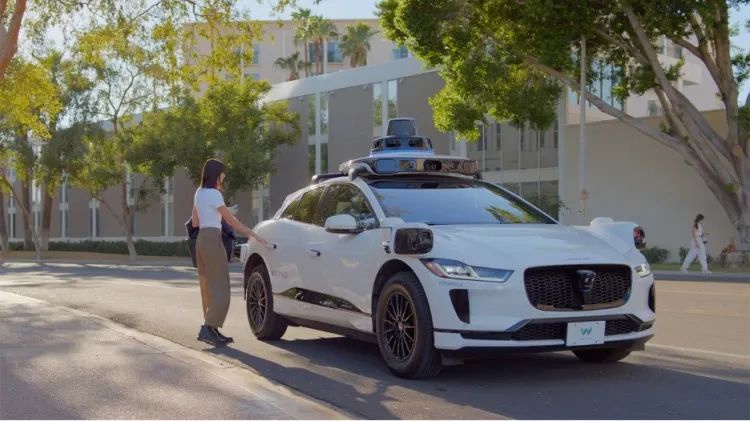
In October 2017, Waymo began driving tests without safety officers on public roads in Arizona. . And it continued to advance technology in the next few years, including developing low-cost sensors and cameras, and switching to self-produced lidar, reducing costs by nearly 90%. Waymo applies these technologies to a variety of vehicles, including the Prius, Audi, and Lexus, while also working with Lyft on pilot programs and product development.
From March to May 2020, Waymo announced that it had received US$2.5 billion and US$750 million in financing. Investors include Silver Lake, Canada’s Pension Plan Investment Board, Mubadala Investment, as well as parts giant Magna, Silicon Valley venture capital firm Andreessen Horowitz and Google parent company Alphabet.
In July 2020, the company announced an exclusive partnership with the carmaker Volvo to integrate Waymo technology into Volvo's van service
In 2021, Waymo raised another $2.5 billion funds. Then it launched a consumer test program to residents of San Francisco and Phoenix, Arizona. The CPUC allows it to operate on limited operating hours, speeds and road sections with a safe driver in the vehicle, and is not allowed to operate in foggy or rainy weather conditions.
On December 13, 2022, Waymo submitted an application to California to fully operate fully autonomous taxis without a final license with a safety officer. Finally, approval was granted in August of this year. Cruise was founded in San Francisco in 2013 and initially focused on developing kits suitable for retrofitting vehicles with limited self-driving capabilities, directly to consumers. Starting in 2015, Cruise changed its strategy and began to develop driverless cars. After being successfully incubated at Y Combinator, Cruise was acquired by General Motors in 2016. At present, Cruise has received more than 6 billion U.S. dollars in financing from SoftBank, Microsoft, General Motors, Honda, etc., and its valuation has reached 30 billion U.S. dollars
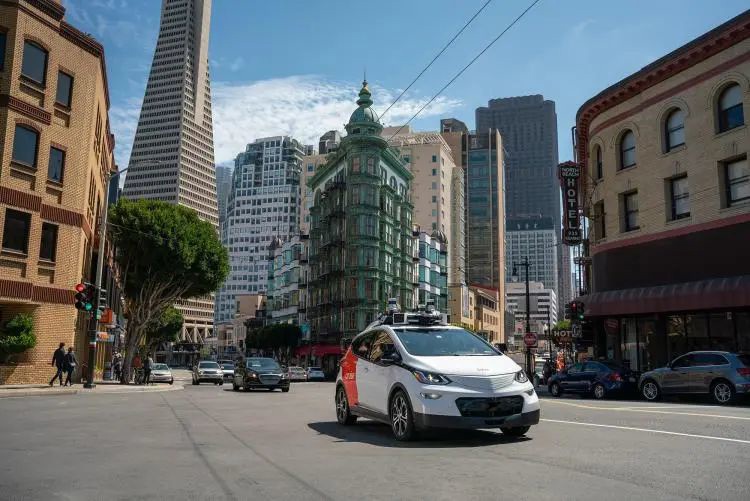 ##Picture From Cruise
##Picture From Cruise|People have different opinions, Which side are you on this time?
Regarding the traffic accident involving Cruise, there are also many voices supporting autonomous vehicles. Many people think it is actually an extreme case: the human driver hit the pedestrian first and escaped, causing the self-driving taxi to be involved.
After watching the surveillance video captured by Cruise, many netizens said that the unmanned vehicle was not the original fault party, but that the uncertainty and risk factor of human drivers was higher. Although the driverless car did stop on the pedestrian because it did not have time to brake, if every car was equipped with safety features supported by artificial intelligence technology, this tragedy might not have happened at all. "This is why we need more driverless cars." s reason".



This article comes from the WeChat public account: Silicon Star Pro (ID: gh_c0bb185caa8d), author: Jessica
Advertising statement: This article contains external jump links (including but not limited to hyperlinks, QR codes, passwords, etc.), which are designed to provide more information and save money. Screening time, results are for reference only. Please note that all articles on this site contain this statementThe above is the detailed content of Self-driving cars running over passers-by can't stop California's push for autonomous driving. For more information, please follow other related articles on the PHP Chinese website!
Related articles
See more- An article discussing the application of SLAM technology in autonomous driving
- Overview of autonomous driving technology framework
- An article talking about the traffic sign recognition system in autonomous driving
- An in-depth discussion on the current status and future trends of autonomous driving development tool chains
- The blueprint for the 'golden decade' of autonomous driving unfolds, with various regions accelerating their layout to seize the opportunity period

